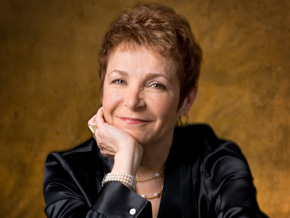Should You Seek Answers or Wisdom?

There is a powerful difference between searching for the answer to a question and pursuing the wisdom in any life challenges.
Consider for a moment that we think of "answers" as one-sentence conclusions to questions: Here's the question and here's the answer. Q&A makes a great partnership, so why shouldn't we apply that method of investigation to probing the deeper concerns of our life? Because sometimes the Q&A method misses the target when that target becomes more complex than a one-sentence response. Sometimes the more pressing matters of life are better served by recognizing that a simple answer will not suffice. Rather, a meaningful quest is better served by the acquisition of wisdom and insight rather than an answer to a question. Consider that wisdom is a game-changing force because in seeking wisdom, you are pursuing a "truth trigger," a hidden mechanism in a situation that, once discovered, initiates a process of transformation that cannot be aborted. Answers can be argued with; wisdom is a final but enlightening truth.Take the question, "What makes you happy?" Is there really a one-sentence answer to that question? For all the seductive energy that question generates—and it does—listing the ingredients of personal happiness remains among of the most challenging questions for people to actually answer. I know. I have asked countless audiences throughout my workshop career to answer that question, to actually articulate in detail the specific items that equal happiness for them. In the vast majority of cases, people respond with silence or by saying that they are uncertain.
At first, these responses baffled me. Was it stage fright? Were people not interested in happiness? Hardly. I reshaped the question to, "How many of you are searching for happiness in some way?" That question hit the high marks, and most hands flew up. That question then became the precursor to, "What makes you happy?" Logically, if you know what makes you unhappy, surely you must have at least a slight idea—a fantasy—anything, something in your imagination about what would make you happy. Still, when it came to actually articulating the specifics of what they wanted and needed to be happy, most people hesitated—and still do.
I finally realized that beyond the discontentment that often drives us to despair or to think we are unhappy is a deeper wisdom that that tells us that, "You may be unhappy, but that does not mean you are in the wrong place with the wrong person or people." Unhappiness may be a temporary phase, an overload of the current pressures of life or a need to recognize self-neglect. It may be that you need to take a step back and evaluate if and how you have "de-animated" much of your life. Perhaps, over time, you gradually withdrew your enthusiasm, and you never even realized it. We often de-animate relationships, jobs, everything and anything, and because it happens so gradually, we don't discover we are depleted until we are so low on energy that our entire life looks bleak.
Not answering the happiness question can also be an indication that a person is waiting for someone else to change everything and make her world a better place, a place she doesn't really want to leave but just have renovated. So the person is still aware that the fundamental ingredients for happiness are in her life—they just need to be reenergized. But who is supposed to change and do all that work? Ah—that's the deal-breaker.
Discover the wisdom jewels



